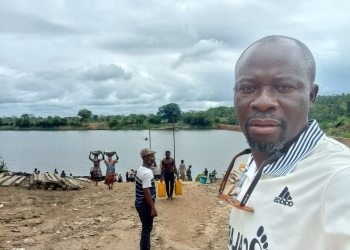By Anietie Akpan
Health experts have decried the low rate of early initiation of breastfeeding by mothers in Cross River State, saying the time has come for action.
Speaking recently at a one day workshop on exclusive breastfeeding organized by the Cross River State Primary Healthcare Development Agency (CRSPHDA) in Calabar in conjunction with the United Nations Children Fund (UNICEF), one of the Facilitators, Dr Joan Ikobah of the Department of Paediatrics , University of Calabar Teaching Hospital (UCTH), said “1100 lives will be saved every year if we practice early initiation of breastfeeding”.
According to her, early initiation of breastfeeding entails the exclusive breastfeeding of the new born babies by their mothers within one hour of delivery and continuously for the first six months.
She stated that zero water campaign and support for breastfeeding is very important for breastfeeding mothers and people should always start talking about breastfeeding from day one.
Dr Ikobah pointed out that exclusive breastfeeding rate as far back as 1990 stood at only two percent and in 2024 the figure is just 29 percent whereas “the World Health Organisation (WHO) target is that 50 per of babies should be exclusively breastfed for six months but we are at 29 percent“.
She emphasized the importance of breast milk saying, it contains 88 per of water hence breastfeeding mothers do not need to give their babies water within the first six months of delivery.
She said the stomach of a baby is very small and by the time a mother gives the baby water, the baby will be filled and only small space will be left for breast milk. So mothers should not give their babies water except breast milk within first six months of putting to bed.
On benefits of exclusive breastfeeding, she said, “children that are exclusively breastfed are very intelligent, billions of money is saved, stunting is greatly reduced because a child gets enough nutrients from the milk, protects against allergy and infection, and others”.
For now, she said stunting in Nigeria is 40 percent high which is bad and to arrest that, exclusive breastfeeding which the Bible also supports in Luke 11:27 must be carried out and proper feeding with good nutrients within three years to ensure healthy growth of a child.
The Director General, CRSPHDA , Dr Vivian Mesembe Otu, in her welcome address, said the workshop dealt mainly with the private practice on how they handle issues of breastfeeding.
“Our mothers don’t do exclusive, so we do constant counseling and advocacy on exclusive breastfeeding. We need to go back to olden days breastfeeding and we should discourage use of artificial milk by mothers to feed their children. All of us including the private sector should join hands to combat poor breastfeeding habit”.
On her part, the Director, CRSPHDA, Dr Winifred Ogar, pointed out that the workshop was supposed to be part of the World breastfeeding activity and “we are trying our best to get the message of exclusive breastfeeding to mothers”.
Looking at the nutrition situation in Cross River State, she stated that the private sector is not doing well and the 2018 data survey showed that underweight in the state was 27 percent and now in 2023/2024 stunning rate in the state is about 30 per while wasting stood at 20 percent.
In Africa, she said, “Nigeria is leading in malnutrition and this data is very bad as it does not tell a good story. Optimal infant feeding practices through early initiation is very important for mothers as nutrition assessment and percentage of severe wasting is very high.”
On birth registration in the south south states, Ogar stated that “we have large number of stateless children because most of them are not registered and maternal situation is 31 death per 1000 birth.
Dr Ogar stated that recent data on nutrition indicators in the state is poor as breastfeeding indicators still low below the WHO goal, hence “breastfeeding is cornerstone for maternal childcare as we discourage commercialization of breastfeeding substitutes.






